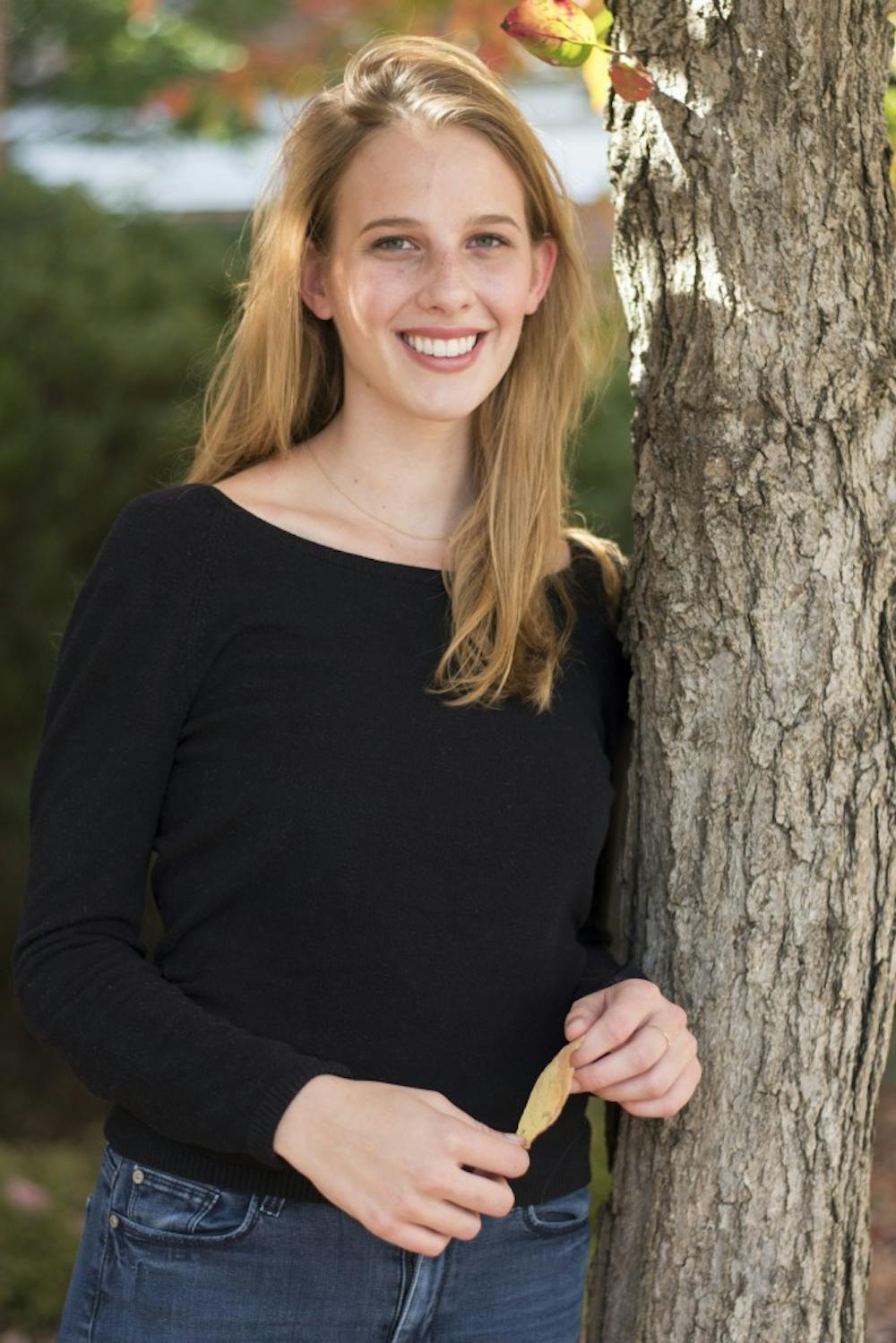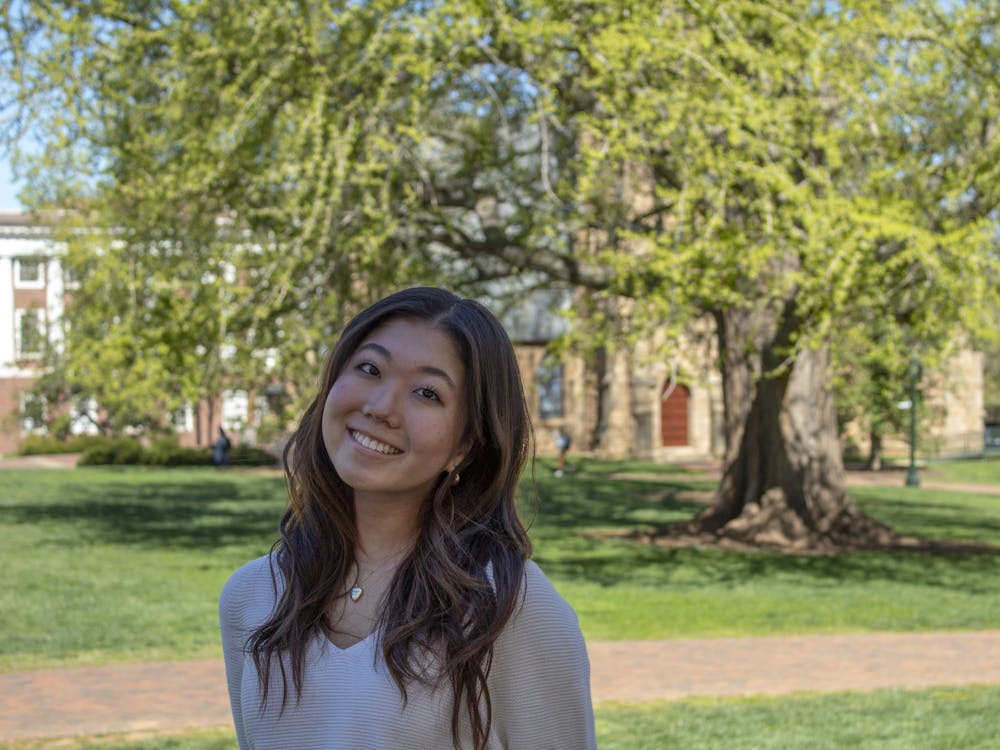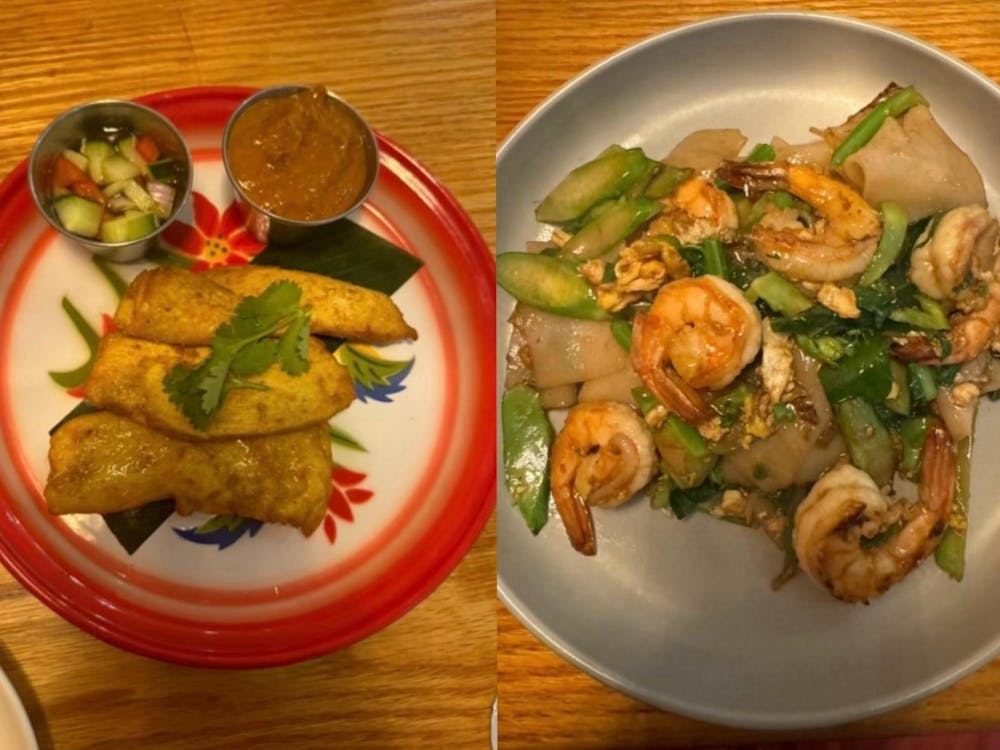“I mean, it’s not like I care,” she said to me as we walked down Rugby Road one Friday night, heading home in the crisp fall air. “It’s just, I don’t know. Strange.”
My best friend’s words are not strange or unusual. They have been repeated by countless friends. “I don’t care” is the defining phrase of our modern love.
These loves start in the quieter parts of bars, where the thumping bass is slightly muted, on the porch outside a dark room or over a sweating beer on fenced-in tables, listening to a jam band through late-summer evenings. Some start in a shared class, a borrowed pen, a mutual organization.
And then, a few erratic texts — “Hey, what’s up?” “Not much, you?” “Where?” “Yeah, now;” soon after, a walk home. Maybe you’ll kiss. Maybe they’ll stay over, see the inside of your messy room. Meet your giggling roommates in the morning over coffee and burnt eggs. But no labels. Close, but no closer.
“Yeah, it was fun. What do you think, do I text him? We have a date function on Thursday, maybe I’ll ask him. But I don’t want him to read too much into it,” another friend asked, as we sat on a bench outside Alderman.
Sometimes, you’ll keep “talking” — whatever that means. Talking over text in a transient, undefined relationship. Typing, waiting to respond, because it’s become easier to pretend not to care. The attempts to lower feelings, lower expectations — it probably won’t work, I’m not even thinking about it. The continual contest — who can act like they care less about the other.
“He barely even said ‘hi’ to me. And then left with someone else,” another friend said, sitting on my white couch under a patterned blanket, as the sounds of the marching band thrummed through our kitchen windows. “But we aren’t ‘official.’ So I didn’t say anything to him.”
Most of my friends are upperclassmen — still girls and boys in some ways, yet they’re legally men and women who have jobs in consulting firms and publishing houses, who are leaders of organizations on Grounds, who are club-sport players and soon-to-be doctors. They’re “empowered,” a generation of app-makers, shaping an online and offline world, running grassroots political campaigns and activating, organizing. It seems that, in a time when we can control our majors, our future careers, how many hours we spend preparing for an accounting exam, we also want to feel like we can control our emotions.
The same people who, on their resumes, list summer internships and GPAs, who receive scholarships and fellowships and, yet, cannot seem to understand how to connect to another person. Through years of college, I’ve watched my friends and I get older, move apartments, change cars and clubs, but connect less.
Is this the famed “hook-up culture” of college? Or something a little stranger, more accountable than the brevity of intimacy in forgotten fraternity parties? It seems to me to be somewhere in between one-time encounters and long-distance loves, mediated over grainy Skype calls and visits once a month. These are half-loves, hearts split between trying to form some sort of connection and a pull to not feel too deeply, lest we lose control.
“Was there closure? I guess,” another friend haltingly spoke over a sandwich, his words mingling with recorded a capella on a Wednesday afternoon. He continued, “There wasn’t anything to begin with. Nothing definite, anyway. So, I guess that’s closure.”
Grace’s column runs biweekly Fridays. She can be reached at g.muth@cavalierdaily.com.





